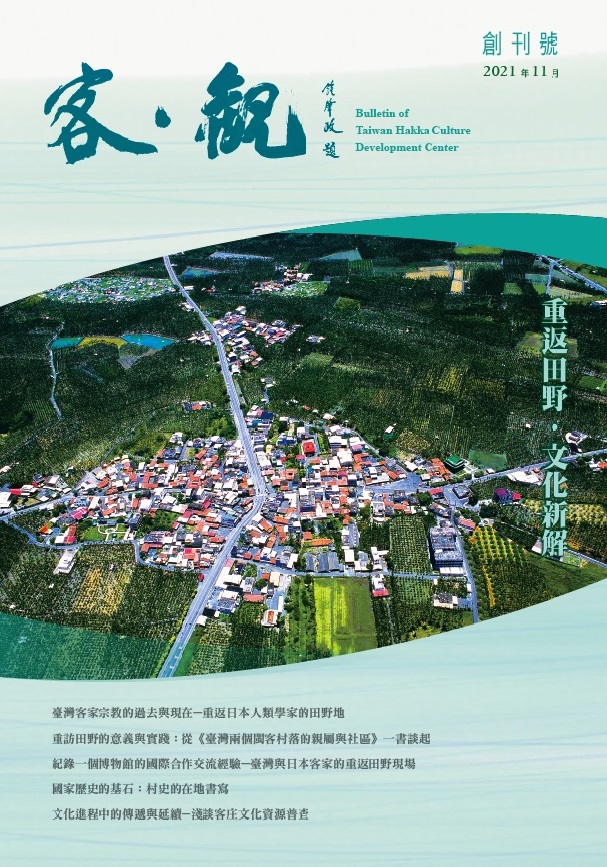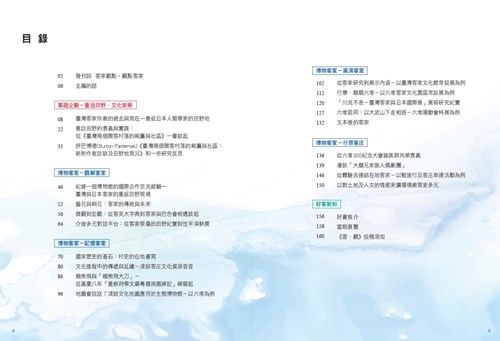
News
The Bulletin of Taiwan Hakka Culture Development Center – Ke Guan – inaugural edition issued November 2021!
- Source:客家文化發展中心
- Publication Date:2021/11/04
- Last updated:2022/04/28
- Count Views:1653

The bulletin “Ke Guan” is the first Hakka periodical to be published by the Taiwan Hakka Culture Development Center. Different readings of the two characters that make up its name offer up two levels of meaning. The first (“Hakka view”) signifies starting out from Taiwanese and global Hakka to take a look at Hakka and neighboring ethnic groups. The second meaning (“objective”) signifies breaking with a one-sided viewpoint, to consider Hakka and non-Hakka issues from different viewpoints or angles. With the museum and Hakka at its center, the bulletin will present special themed content in each periodical, at the same time combining domestic and overseas surveys, research, collections, exhibitions, education promotion or forums, through observation, reporting, analysis, research, or interpreting Taiwanese and other countries’ Hakka’s local historical memories, changing ethnic relations, stories of ancestral clans, cultural and artistic styles, ordinary life and culture, globalized connections – these complex and varied, intersecting and fluctuating gifts. The two characters “Ke Guan” on the cover were inscribed by the late mother of Taiwanese literature Chung Chao-cheng.
The Center underwent organizational changes in 2021 to move towards a dual-track system, step by step introducing educational researchers and combining internal and external academic experts and resources to expand our Hakka and ethnicity research capabilities. “Ke Guan” is concerned with the promotion of popular science, bringing together academic research and the museum’s work, with an editorial team made up of the Center’s own staffers combined with specialist academics and consultants that forms the editorial team. Through a specialized academic review mechanism, we hope to continually open up more varied research dialogue and exchanges to further deepen the Hakka knowledge system.
The biannual “Ke Guan” bulletin is divided into “Featured Topic,” “Museum and Hakka” and “What’s New” sections. Each edition will reflect social changes and current trends with a different designated “featured topic” thematic element to share special articles/interviews, field notes and book reviews with readers. “Museum and Hakka” deals with understanding Hakka and Hakka memories, Hakka performances and exhibitions and travels to Hakka communities, through the angles of surveys, observation, analysis, sharing or practices interpreting or writing “Museum and Hakka.” “What’s New” introduces readers to information on new exhibitions and publications.
The featured topic of the inaugural issue is “Back to the Field, New Cultural Interpretations,” looking back on fieldwork carried out by American and Japanese anthropologists in Taiwanese Hakka communities from the 1960s to the ‘80s, exploring the meaning of “returning,” retracing the footprints of past anthropologists, historians and sociologists and revisiting important Hakka field research. In another aspect, “back to the field” reminds us that while we face changes in time and space, we should again understand the contemporary changes in the field’s location, linking tradition and innovation in local culture through community surveys and observing the course of changes in society, politics and environment. “Back to the field” also reminds the museum in an age of ever-changing information to always maintain a high degree of sensitivity and ability to reflect, to cooperate across different academic subjects or disciplines (history, sociology, geography, anthropology), in the context of global development or regional development to generate new research ideas or practices together to avoid the blind spots of one-sided spatiotemporal breakpoints or individual research, especially the Liugdui Eco-Museum that is predicated on literature and history. We expect the publication of “Ke Guan” to spark more diverse interpretations and communication in ethnicity and Hakka studies at home and abroad.
Adviser: Hakka Affairs Council
Publisher: Hakka Affairs Council, Taiwan Hakka Culture Development Center
Publication address: Tongke South Road No. 6, Jiuhu Village, Tongluo Township, Miaoli County 366003
Phone: (037) 985-558
Fax: (037) 985-991
Website: https://thcdc.hakka.gov.tw
Publisher: Ho Chin-liang
Editorial Consultants: Chang Wei-an, Huang Shiun-wey
Admin Planning: Wu Te-chi
Editor-in-Chief: Lai Yu-ching
Editor: Lai Yu-ching
Executive Editor: Chu Ling-yao
Editorial Board: Lai Yu-ching, Ma Chi-cheng, Feng Chien-chang, Chang Jung-chia, Chiu Hsiu-ying, Chu Ling-yao, Liu Shu-ru, Chiu Yi-chieh, Chiu Hsien-chun
Cover Photo: Datie Village, Sinpi Township, Pingtung County/Chi Po-lin (Courtesy of Hakka Culture Development Center)
Date of Publication: November 2021
ISSN 2789-4924
GPN 2011000013
Price: NT$120
Sale information
Hakkashop
https://thcdc.hakka.gov.tw/hakkashop/
◎ govbooks
https://www.govbooks.com.tw/
◎ wunanbooks
https://www.wunanbooks.com.tw/
◎ smcbook
https://www.smcbook.com.tw/smc/
◎ tonsanbookstore
https://tonsanbookstore.cyberbiz.co/
◎ tonsanth
台中市龍井區新興路2巷2號
◎ Sufen Bookstore
台北市南港區研究院路二段128號
中央研究院學術活動中心 B1
◎ store.showwe
https://store.showwe.tw/
◎ books
https://twbookssite.wordpress.com/
◎ Pchome 24 book store
https://24h.pchome.com.tw/books/store/DJAV5E
◎ San Min Books
https://www.sanmin.com.tw/#
◎ kingstone
https://www.kingstone.com.tw/
◎ HyRead ebook
https://ebook.hyread.com.tw/

